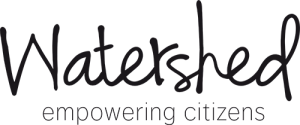A feature article in the Ugandan Saturday Vision of November 16, 2019.
A recent study done by IRC Uganda established that different groups of people in Uganda are marginalised from access to adequate water, sanitation and hygiene (WASH) services. The groups include women and girls, communities in hard-to-serve/reach areas, children, the elderly, the poor, ethnic minorities and persons living with disabilities (PWDS). The other affected groups are people with unique livelihoods like pastoralists, forest dwellers, fishermen, refugees and transient communities.
The IRC report highlighted the importance of the involvement of civil society organisations (CSOs) in advocacy work and WASH policy formulation. “It was widely acknowledged that CSOs have a significant role to play in addressing marginalisation and exclusions from WASH services. CSOs are better positioned to create awareness on the right to water and sanitation, as well as facilitate documentation and learning processes,” the report reads in part. It adds that CSOs can effectively contribute to policy processes through investing in research and innovations to support evidence-based advocacy, as well as facilitating policy dialogues.
Location: Uganda
Language: English
Type: Article, Journal, Newspaper

